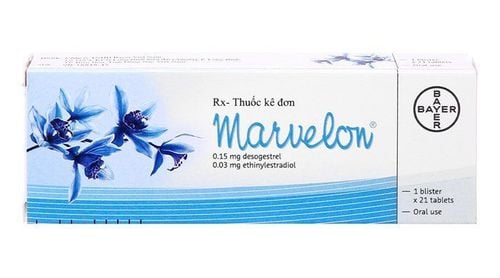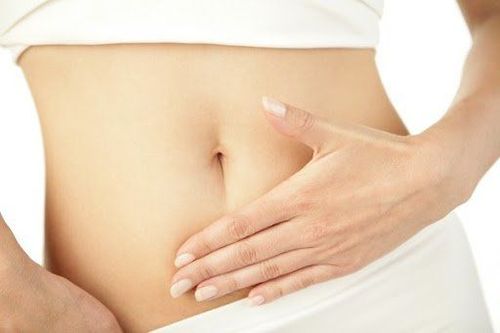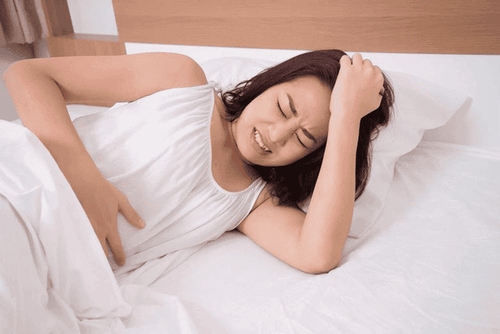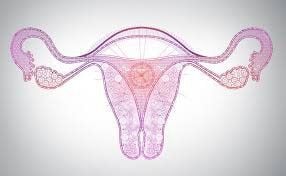The article was professionally consulted by Dr. Ngo Thi Uyen, PhD, MD, Obstetrician and Gynecologist - Department of Obstetrics and Gynecology - Vinmec Nha Trang International General Hospital
In women, the ovaries are primarily known for producing eggs and performing endocrine functions to create female sex hormones. There are many concerns surrounding ovarian removal surgery, and one of the biggest questions from patients is whether menstruation will occur after the ovaries are removed.
1. Do you have periods after oophorectomy?
For women of reproductive age who are trying to have children, one of the most worrying issues for many women is having to remove one or both ovaries at the same time. There are two main cases that require oophorectomy:
- Women with dangerous diseases that directly affect their health and fertility such as ovarian cyst necrosis, ovarian cancer, etc.
- Women who are close to menopause and need to have their ovaries removed to reduce the risk of ovarian cancer (often performed in combination with hysterectomy for pathological reasons of the uterus).
Every woman's body has two ovaries, the left and the right. In cases where both sides are sick and at risk of cancer, the doctor must prescribe removal of both ovaries.
There are different changes in having to remove both ovaries in pre-pubescent and pubescent women (using menstruation as a benchmark). If both ovaries are removed before puberty, many physiological signs of women will stop developing, such as no menstruation, breasts stopping developing, and hair not growing... If both ovaries are removed after puberty, when the body has developed, the monthly menstruation will disappear. However, in the case of only one ovary is surgically removed, the opposite ovary is still able to function normally, and the woman will still have menstruation and normal body development or slightly less than normal. Because the 2 ovaries function independently of each other, the ovary that is retained still has the ability to reproduce and has an endocrine function.
2. Recovery After Oophorectomy
The recovery after oophorectomy surgery depends on the patient's health and the surgical method, typically taking around 6 weeks. During surgery, there is a risk of significant blood loss. This means that in the weeks following the surgery, the patient may experience infection, fever, or redness and pain near the surgical site.
3. Chances of Pregnancy After Oophorectomy
The chance of conceiving after the removal of one ovary is about 50%. After the removal of both ovaries, a woman will not be able to conceive naturally, but pregnancy may still be possible through in vitro fertilization (IVF) using donor eggs

4. Do I need to supplement estrogen after oophorectomy?
Estrogen is a female sex hormone that plays an extremely important role in the formation and regulation of the menstrual cycle, the development of the female sex and reproductive organs such as the vagina, fallopian tubes, and endometrium... and creates secondary female characteristics such as a clear voice, small shoulders, full breasts and regulates fat distribution to create a female figure.
In the female body, estradiol, estrone, and estriol are estrogens secreted by the ovaries and placenta. Currently, medicine has been able to synthesize estrogens such as estrone and estriol to supplement when the body is deficient.
In the case of both oophorectomies, the body will lack estrogen, leading to a phenomenon similar to menopause, called surgical-induced menopause, so it is very necessary to supplement estrogen. However, this must be strictly followed according to the doctor's instructions. Estrogen can cause some unwanted effects when used: breast tension, nausea, headache, jaundice, cholestasis, hypercalcemia, weight gain, and especially can cause endometrial cancer, and breast cancer.
5. Does Oophorectomy Affect Sexual Function?
The ovaries are responsible for producing eggs and secreting hormones that help women develop sexuality and maintain sexual desire. The ovarian cells secrete three hormones: estrogen, progesterone, and androgen (the general term for testosterone, the male sex hormone).
Among them, testosterone is the primary factor that determines sexual desire in women and accounts for 50% of a woman's sexual life, with the remaining 50% depending on health and the condition of the "mechanism." Compared to men, women have lower levels of testosterone, but they are more sensitive to this hormone than men. Therefore, it is incorrect to say that women have less sexual desire than men.
The adrenal glands also secrete testosterone in women, and it has been observed that after the removal of both ovaries, testosterone levels in women do not decrease. However, due to the reduction in estrogen levels, sexual desire also decreases, and the risk of losing the ability to orgasm increases threefold compared to women with normal ovaries of the same age.
In the case of removing one ovary, the remaining ovary can compensate, maintaining normal hormone levels and not affecting the woman's sexual life.
Please dial HOTLINE for more information or register for an appointment HERE. Download MyVinmec app to make appointments faster and to manage your bookings easily.













